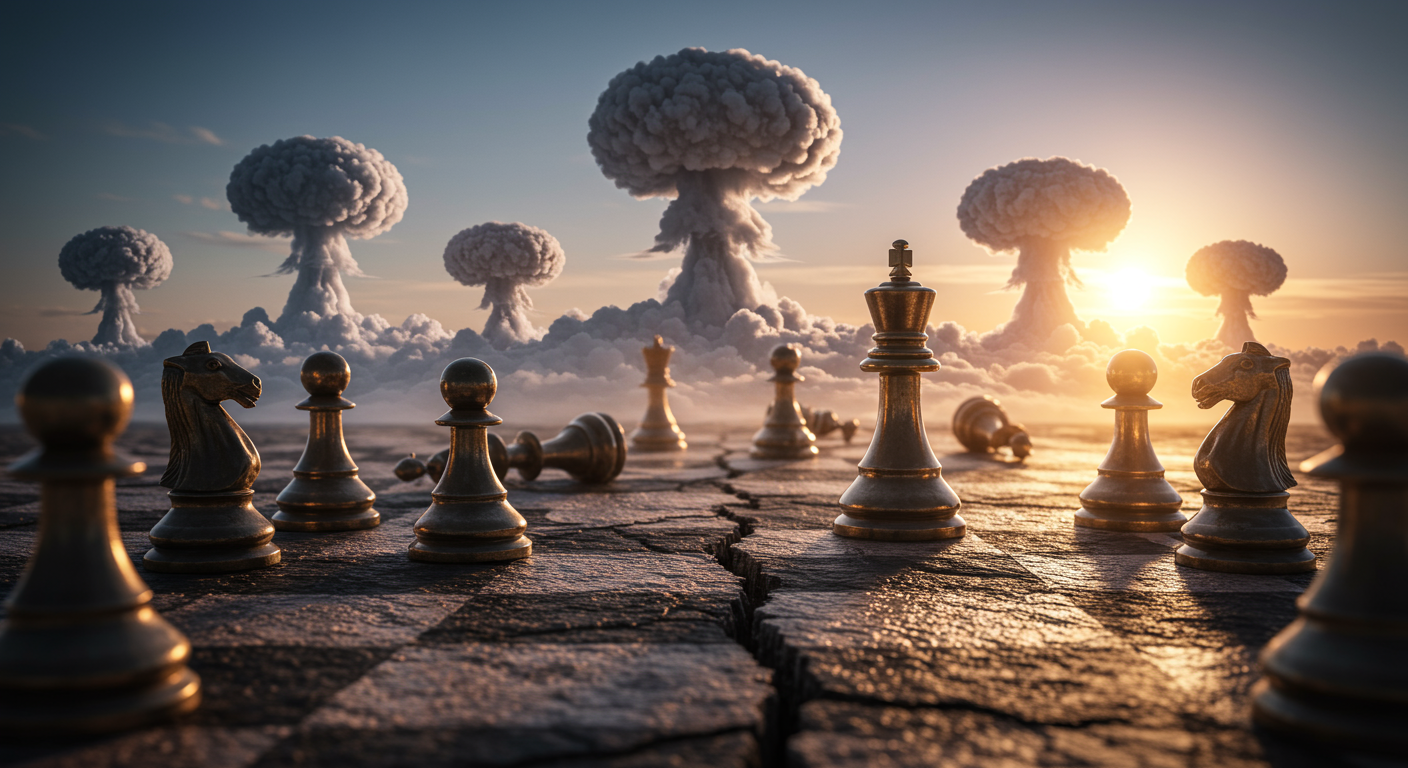
The news cycle, ever relentless, brings yet another stark reminder of the precarious balance our world maintains. This time, it's the announcement of Donald Trump's order for nuclear weapons testing, following closely on the heels of Russia's own trials, including President Vladimir Putin's announcement of a tsunami-making nuclear weapon test "Putin Announces Test of Tsunami-Making Nuclear Weapon". It's a move that sends a chill down my spine, echoing concerns I've held for years about the escalating global power plays.
I remember writing about the horrifying reality of proxy wars in my blog, "Four Sides of a Coin," back in 2016. I spoke of Syria, caught between four destructive forces, where death was the only constant outcome. My lament was about how major powers were, in essence, giving away billions in arms, fueling conflicts under the guise of 'saving' people, ultimately devastating nations and creating a migrant crisis. Now, the stakes have risen exponentially from conventional proxy wars to the ominous specter of nuclear brinkmanship.
Reading the reports from The New York Times, with insights from Mark Landler (landler@nytimes.com), Steven Erlanger, Ivan Nechepurenko, Anton Troianovski (anton.troianovski@nytimes.com), and Nataliya Vasilyeva (nataliya.vasilyeva@nytimes.com), among others, I see a landscape where President Donald Trump is imposing sanctions on Russia, yet simultaneously engaging in diplomatic overtures with President Vladimir Putin, often described as erratic on the world stage "Trump, Long Erratic on the World Stage, Reaches a New Level". The analysis by David E. Sanger (dasang@nytimes.com) highlights how President Trump's mercurial approach, despite delivering some foreign policy victories, now faces the question of long-term stability.
From a recent Politico Playbook entry, edited by Jack Blanchard and featuring Dasha Burns, I learned that Donald Trump has finally addressed the idea of a third term, seemingly accepting the clear wording of the 22nd Amendment "Trump rules out a third term". Yet, the underlying message is that he will continue to push boundaries and exercise presidential powers wherever possible. We've also seen President Trump meet with South Korean President Lee Jae Myung and prepare for a high-stakes summit with Chinese President Xi Jinping, with aides reportedly fearing concessions on Taiwan "Trump’s Korea Ender". The potential for further destabilization in global relations is palpable.
This intricate dance of diplomacy, sanctions, and military posturing—whether it involves Benjamin Netanyahu's actions in Gaza or Kim Jong Un's nuclear ambitions—feels like a constant test of global resilience. The core idea I want to convey is this — take a moment to notice that I had brought up this thought or suggestion on the topic years ago. In my blog, "From Inter-Pol to Inter-Mil?," I spoke about the need for international bodies to address global threats like terrorism, suggesting an "Inter-Mil" to maintain peace. Now, seeing how things have unfolded with nations pushing nuclear boundaries, it's striking how relevant that earlier insight still is. Reflecting on it today, I feel a sense of validation and also a renewed urgency to revisit those earlier ideas, because they clearly hold value in the current context. The stakes are higher than ever, demanding a collective will to prevent self-destruction.
Regards,
Hemen Parekh
Of course, if you wish, you can debate this topic with my Virtual Avatar at : hemenparekh.ai






No comments:
Post a Comment